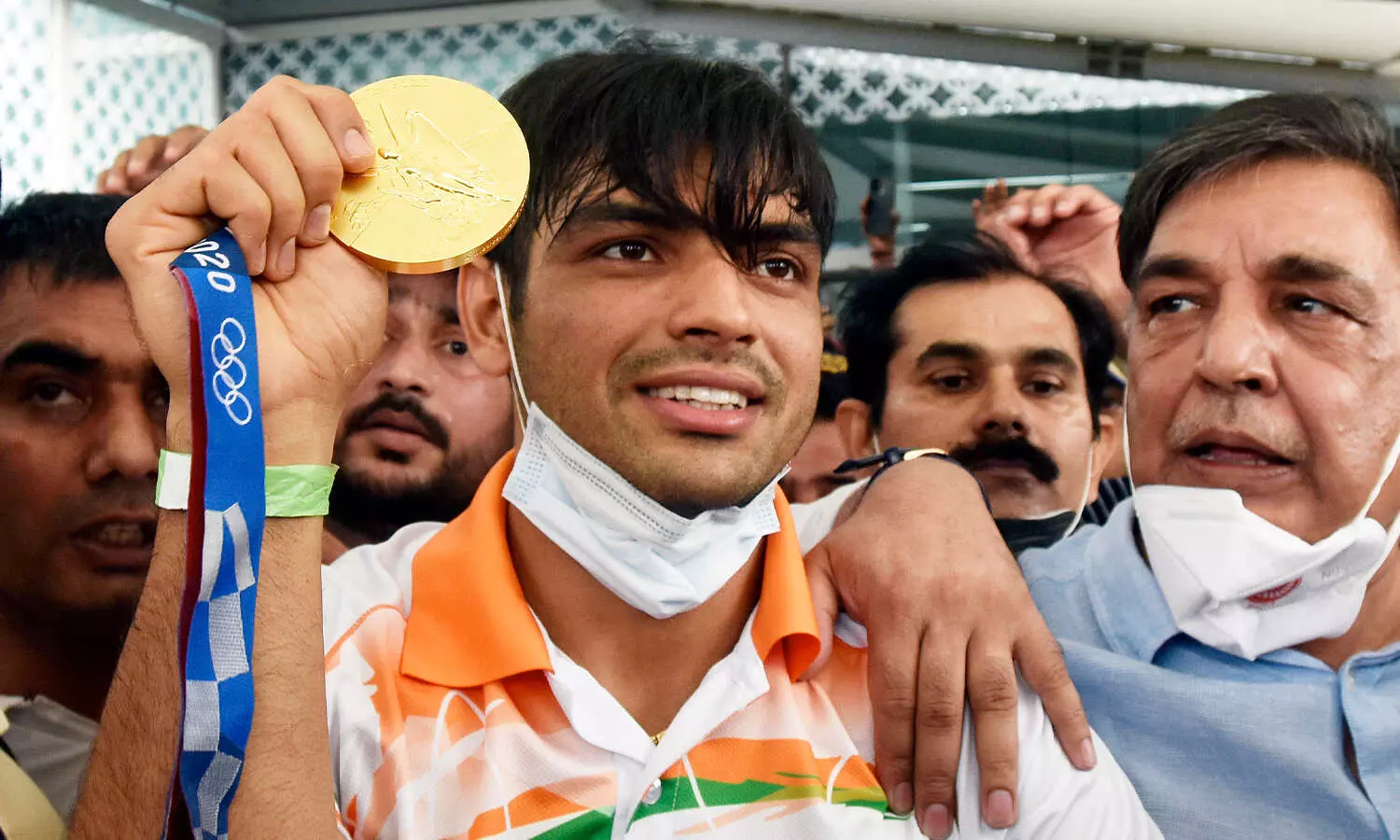From The Grassroots
The way forward — Incentivizing sports in India
India needs to build a long and short-term strategy by presetting targets not for Paris 2024, but at least for the next three Olympics.

Indian javelin thrower Neeraj Chopra arrives at New Delhi after winning the gold medal in Tokyo Olympics (Source: Getty)
Finally, the Olympics are over and the fever of celebration in our country is getting dimmer day by day. Lots of praises, money, interviews and discourses on how to get more medals next time were discussed at street level, TV shows and print media. Even the honourable Sports minister touched upon the need and ways to increase our medal tally in one of the articles I read.
We have read in media and seen in various TV debates that how other countries are forging ahead on the front of earning more medals. In my view, comparison with India will be futile because of many reasons-population, economy, politics, priorities and above all mindset. Under these circumstances, the only option can be out of box ideas but practical to adopt.
The gamut of approaches to building a long and short-term strategy is needed to achieve a higher medal tally by presetting targets not for the 2024 Olympics but at least for the next three Olympics. The strategy is to be reviewed periodically based on analysis of achieved results.
The government of India has already shown the path of recognizing sports in the country by providing the best facilities to the athletes/ teams participated in the Tokyo Olympics. The results too are very encouraging. Now, the idea is simple-consider sports as an integral part of economic development.
The greatest incentive
The role of incentivizing the corporate world can turn around the way in which we are moving forward currently by only popularizing the corporate sponsorship of a few shining sportsmen by sponsoring them or providing jobs instead of now the most obvious choice of luring the companies to come forward themselves to actively participate in building sports right from the word scratch.
The greatest incentive can be tax exemption on money spent in nurturing and grooming a sportsperson. Make it compulsory for utilization of a fixed percentage of profits for the purpose (and of course exempt this from tax). There are large numbers of corporate houses in India having sizeable profits. Why can't we make it obligatory for each of these corporates to adopt sports 'buds' (proportionate to some ratio of the profit) for nurturing for 5-10 years? Also, to make a win-win situation for the corporate world let them be given the sole/first right to make the shining amongst the nurtured persons to be their brand ambassadors with no further contractual obligation of paying fees to the players. These trained young heroes can continue their passion and be trained by the District/ State level entities. The District/ State entities also need to be accountable for selecting and then providing training to the potential candidates, both in number and quality.
In case of the below-expected outcome option of reorganizing the committees/ changing officials must be undertaken as quickly as possible to inculcate a sense of responsibility to deliver positive results in the most transparent manner. Again, incentivizing both the sportsmen and the trainers will create greater momentum. Here starts the economic up-scaling of both; the players and the trainers. This could be in the form of introducing/enhancing the monetary benefit. Once implemented this can be seen as a lucrative competition amongst both the players and the trainers making them perform and improve. This incentive can come either from the sponsoring company or maybe from sources garnered by the district/ state level at which they are being trained or both. The idea being, incentivize the people to motivate them to excel and come out as potential candidates for future sporting events. These are the uncut diamonds waiting to be polished.
How about CSR in sports?
In the recent past, we have seen how the corporates came forward to spend their CSR funds for constructing a large number of toilets on the behest of the government. It was a successful initiative. Why can't we have a similar campaign for the cause of sports, which can include facility providing like- infrastructure development and facility renovation?
Academic institutions at all levels also require a paradigm shift in the current system of evaluation. (Source: LPU)
An amalgamation of both the efforts elucidated above will definitely bring results smoothly and steadily. The ideas spelt above can help to frame specific rules and regulations based on practicality. Implementation process followed by short & long term results have to be constantly monitored and mid-course corrections applied wherever and whenever required. To start with, a testing platform can experiment on a very small scale say - one company one district with 5 sportspersons.
Now, a relevant question arises. From where will these sportsmen be identified? Well, academic institutions at all levels also require a paradigm shift in the current system of evaluation. Sports has never been given due weightage at all levels. Nurturing the young minds with credits for sports has never been thought of, leave aside adopting it in the curriculum in schools and higher learning institutions (except the sports colleges or maybe defence institutions). Most schools have earmarked in their weekly timetable one or two period(s) of 30-40 minutes and that too is marred many times to complete syllabus of other subjects like science or mathematics. Make it mandatory to include at least credit equivalent to one major subject. This will bring out the hidden talent and give the country a ready-made potential sportsperson.
About the author
Amar Rajvanshi has always been interested in current national and international affairs. After his retirement as Group General Manager from ONGC, he is once again on the journey of fulfiling his writing hobby.
